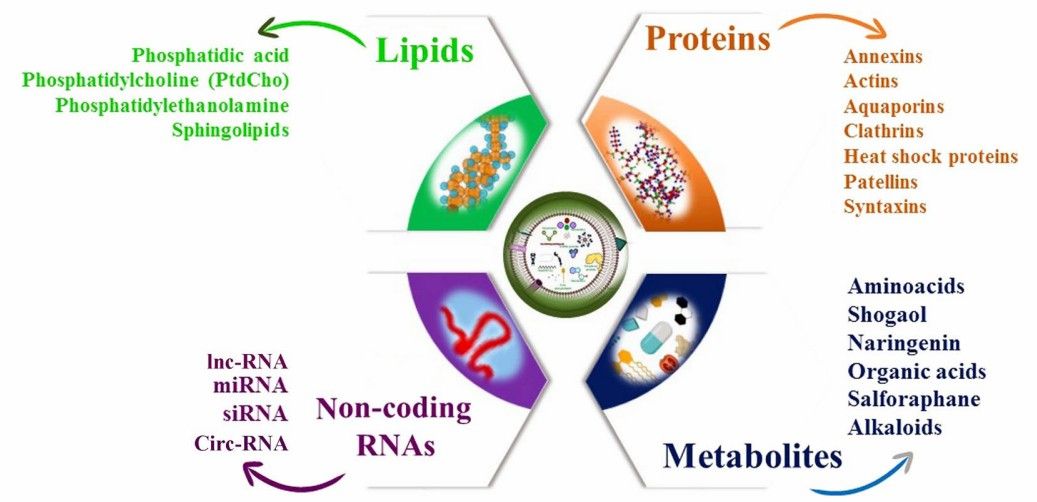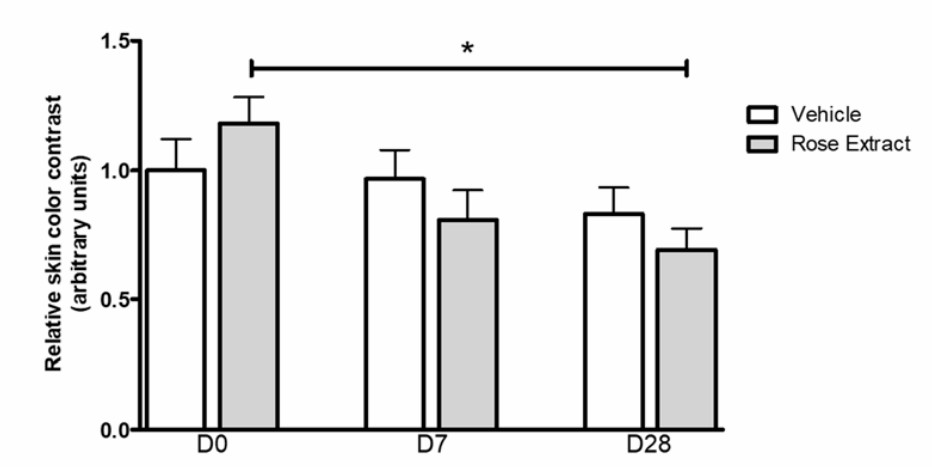Rose-derived Exosome Research and Application
Studies have shown that plant cells can also secrete nanovesicles similar to animal-derived exosomes, and these exosomes contain a variety of bioactive substances. As a common flower, roses have also received some attention in exosome research. Creative Biolabs possesses professional exosome research capabilities and can provide high-quality services for clients to develop rose-derived exosomes.
Overview of Rose-derived Exosomes
|
1. Research Directions
|
-
Research on rose-derived exosomes has focused on their effects on skin cells, involving the promotion of skin cell regeneration and repair, reduction of skin inflammation, and improvement of skin texture.
-
The findings that rose-derived exosomes can promote cellular collagen synthesis activity and enhance cell viability provide a theoretical basis for the application of rose-derived exosomes.
|
|
2. Application Directions
|
Rose-derived exosomes may be used in skin care products, cosmetics, and skin repair.
-
In skin care products, they may be used as additives to creams and masks to help moisturize and anti-aging the skin due to their property of promoting skin cell regeneration.
-
In cosmetics, rose exosomes may be used to formulate products such as foundations and lipsticks, providing natural antioxidant and anti-inflammatory effects.
-
In addition, their skin inflammation-reducing properties may also help to alleviate skin allergies and other skin disorders, aiding in the treatment of various skin disorders.
|
|
3. Research Progress
|
-
Research on rose-derived exosomes is still in its infancy.
-
Further in-depth studies are needed to understand the detailed functions and mechanisms of rose-derived exosomes.
-
The extraction, purification, and storage techniques for rose exosomes are also being developed and optimized, which will provide a technical basis for future applications.
|
 Fig. 1 Biological composition of plant-derived exosomes.1
Fig. 1 Biological composition of plant-derived exosomes.1
Extended Rose Extract Functions
|
1. Antioxidant and anti-inflammatory effects
|
-
The polyphenols in rose extract have strong antioxidant and anti-inflammatory effects. These effects can help reduce skin inflammation and redness and help prevent skin aging.
-
Rose extract enhances the skin's barrier function, thereby reducing water loss and keeping the skin hydrated and healthy.
|
|
2. Cell proliferation effects
|
-
Rose extract promotes the proliferation and differentiation of skin cells, which helps in skin regeneration and repair. This effect is positive for wound healing and anti-aging.
-
Rose extract increases collagen production, further improving skin elasticity and firmness.
|
|
3. Antibacterial and antiviral effects
|
Some of the components in rose extract have antibacterial and antiviral effects, which protect the skin from infections by fighting a wide range of germs and viruses. This action is important in the prevention and treatment of skin diseases.
|
|
4. Whitening and lightening effects
|
Ellagic acid in rose extract is a natural polyphenolic compound that has significant whitening and lightening effects. It reduces skin problems such as discoloration and freckles by inhibiting the production and spread of melanin.
|
 Fig. 2 Aloe-derived exosomes excel in skin permeation.2
Fig. 2 Aloe-derived exosomes excel in skin permeation.2
Comparison of Rose Extract and Rose-derived Exosomes
|
Items
|
Rose Extract
|
Rose-derived exosome
|
|
Source
|
Refers to the biologically active ingredients extracted from roses.
|
A type of tiny vesicle secreted by roses.
|
|
Composition
|
Mainly consists of polyphenols, flavonoids, amino acids, vitamins, and other substances. These ingredients have various effects such as antioxidant, anti-inflammatory, antibacterial, whitening, and so on.
|
These exosomes contain a variety of bioactive substances such as lipids, proteins, RNA, etc., and are considered potential as skincare ingredients.
|
|
Applications
|
In the form of single components as efficacious ingredient additives.
|
Both in their natural form as additives, they may also be loaded with other active ingredients, benefiting the delivery and efficacy of other components.
|
Rose-derived exosomes have potential applications in the fields of dermatology and cosmetology. Currently, studies on rose exosomes mainly focus on the isolation process, composition analysis, mechanism of action, and application effects. Future studies may further delve into the bioactive components and mechanism of action of rose exosomes in order to better develop and utilize their potential. Meanwhile, with the increasing interest in natural products, the application prospect of rose exosomes will also be broader. Creative Biolabs can provide services of production development and functional exploration of rose-derived exosomes for clients' related research projects. Please inquire us to discuss a solution.
References
-
Nemati, Mohadeseh, et al. "Plant-derived extracellular vesicles: A novel nanomedicine approach with advantages and challenges." Cell Communication and Signaling 20.1 (2022): 69.
-
Duroux, Romain, et al. "A rose extract protects the skin against stress mediators: A potential role of olfactory receptors." Molecules 25.20 (2020): 4743.
For Research Use Only. Cannot be used by patients.
Related Services:

 Fig. 1 Biological composition of plant-derived exosomes.1
Fig. 1 Biological composition of plant-derived exosomes.1
 Fig. 2 Aloe-derived exosomes excel in skin permeation.2
Fig. 2 Aloe-derived exosomes excel in skin permeation.2









